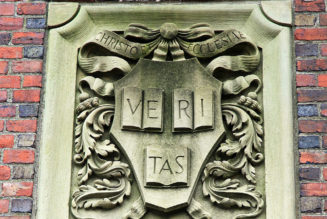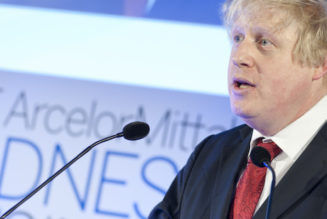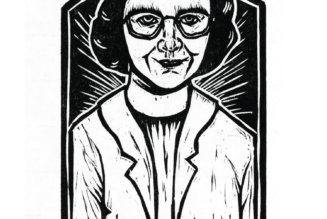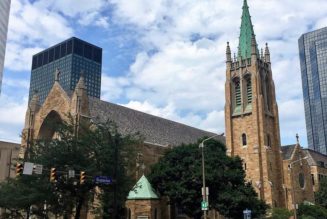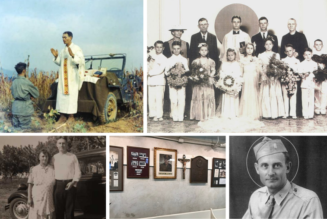
Fostering holy gratitude for what Jesus has done for us is fundamental to making sure we don’t take a pastoral step backward in the post-Covid era. Thus, we need to support our bishops and priests in any way we can, including charitably exhorting them to holiness where needed.
Indeed, a sound, sacramental approach is not only crucial to fostering increased and more reverent participation in Sunday Mass, but also to reconciling long-strayed Catholics and drawing many new members into the Church. Hearing confessions can be draining for priests, but, with a Christ-centered attitude, doing so is a surefire way to grow in holiness and help the parish faithful do the same, as Saints John Vianney and Padre Pio can attest.
In that light, we must thank all bishops and priests who make available confession, “the sacrament of penance and reconciliation,” for more than a brief period once a week (CCC 1422ff.). Confession is crucial both for growing in holiness, but also in renewing one’s faith as an intentional/committed Christian. Pastors may consider making confession more available at their parishes, perhaps on a weeknight or two and associated with eucharistic adoration and/or the celebration of the Holy Mass.
In addition, to “go out to the peripheries,” as Pope Francis has repeatedly implored us, we need to lead with Jesus in offering confession to those who have fallen away from the Faith. And because surveys have shown that fathers are key in determining whether children practice their faith as adults, it makes sense to target and challenge men, as Catholic leaders like Cardinal Sean O’Malley have done. A men’s ministry might, for example, sponsor “game night” at the parish hall or further into the periphery; as men develop fraternity while watching the local team, the pastor might offer confession to men who’ve been away from Christ and his Church.
For mission work on the peripheries, dioceses could also offer confession outside stadiums, arenas and related tailgating sites on game days of pro or college events, or perhaps at hunting and fishing shows, the expo of a major running event, etc. All of these events provide great opportunities to reach men, particularly those who’ve strayed, and it’d be a wonderful witness to see the Church visible in such venues.
Bottom line, only priests have the power to absolve sins through confession, and so parishes should make adjustments through staff and volunteer support to better enable their priests to do what only they can do.
We also need to give better witness to Eucharistic awe. The faithful and those who visit our parishes must see that we believe in him who we are worshiping, and that our Masses, whatever the architecture of our respective churches, solemnly bespeak our entering into the heavenly liturgy itself (CCC 1136-39), as Christ’s self-sacrifice culminated in everlasting glory at his Ascension, and thus is always offered on our behalf in the heavenly sanctuary! (Heb. 8:1-3; 9:11-12).
Churches are sacred spaces, where heaven and earth intimately connect, and thus not to be used for mundane gatherings better suited for the parish hall. And an especially sacred space is the sanctuary, in which the altar is fixed and the tabernacle reserving our Eucharistic Lord often located. Sanctuaries are the New Covenant analogue to the Old Covenant temple’s innermost worship areas, where only designated ministers could draw near to serve.
In decades past, altar rails reminded the faithful of the sanctuary’s sanctity, and because we learn by what we receive through our five senses, I join those advocating for the restoration or construction of new ones wherever possible. Again, the sanctuary is the place where priests offer the solemn Sacrifice of the Mass, and our reverence toward this sacred space should follow accordingly.
Further, while our inner disposition in receiving the Eucharist is most important, our outward posture aids and reflects that disposition, as when we kneel when receiving Communion, which altar rails would make easier. In addition, the regular use of patens reinforces the holy awe of our Lord, truly present in the Eucharist.
Those who think that I’m emphasizing style over substance, must address the fact that only 21.1 percent of U.S Catholics participate in Sunday Mass regularly, and only 63 percent of those believe in the Real Presence. One-third of U.S. Catholics profess belief in Christ’s true presence in the Eucharist, although that percentage markedly improves when Catholics are told the correct teaching and asked whether they assent to it.
However you interpret the statistics, the data is troubling, and what we’re currently doing in forming the faithful is not sufficient. At Mass, we participate anew in the one Paschal Sacrifice of the Incarnate Word, the God-man Jesus Christ, and we have the sublime opportunity to receive him body, blood, soul, and divinity in the Holy Eucharist.
When we were eight years old, my classmates and I understood we were receiving Christ’s saving body and blood under the appearances of bread and wine, although one can spend a lifetime plumbing the depths of the Eucharistic Mystery. Given our childlike innocence and faith, we could faithfully receive our Lord and avail ourselves of the overwhelming grace offered to us through this sacrament of union with Jesus.
Everything we do in celebrating Mass must proclaim this transcendent reality, not only for the edification of those who already believe, but for those wavering in faith, those who have strayed, and those not yet Catholic—Christian and non-Christian alike—who do not yet know but are drawn to our Eucharistic Lord.


